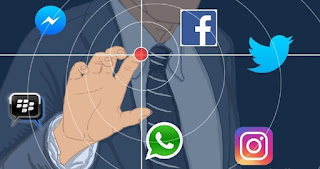Accessing social media (medsos) has become a daily necessity. However, a number of studies have revealed that accessing social media too much has negative effects, both physically, psychologically, and socially
Experts also recommend doing a social media detox, especially those who are already dependent. So that physical and mental health can be better maintained.
So far, there is no agreement on how long the effective or ideal time to detox social media is. There are those who choose a week, a year, even some people decide to take a break from social media permanently.
Here are tips from Kaspersky to help you detox social media
1. Minimize Feed Content Exposure
Unfollow (unfollow) anyone you don't want. If you don't think you're getting any benefit from the content, you don't need to see it on your social media feeds.
If you are reluctant to unfollow or unsubscribe, try implementing the mute feature. Your friends will not know that you have muted them.
2. Centralized communication
Social networks are more than just feeds; they are also a place to stay in touch with friends, relatives and colleagues. But if you communicate with people on nearly half a dozen platforms, you might waste a lot of time checking every message that comes in.
Try to apply a central pattern of communication with colleagues. Tell them where to contact you and focus on just one or two platforms.
That way you will be able to check other platforms less often without fear of missing important messages.
3. Clean the screen
Have you ever opened your smartphone just to check the weather, and then saw the Facebook icon, opened it for a while, and ended up spending two hours on the platform?
To avoid this, try moving social media icons out of sight. For example, hide it in a folder or put it on the third or fourth page of the application to make it more invisible and unthinkable.
4. Organize notifications
It doesn't matter how much you avoid feeds and even keep social media icons out of sight, but when a notification pops up, you can easily, mindlessly click on the notification and come back to it.
To help concentrate on what's important, try turning off unnecessary notifications.
5. Configure screen duration or digital health
You may not realize how much time you spend on social networks and messaging apps. The good news is that there are many applications that can help control users' digital habits and do not need to be downloaded.
You can go to smartphone settings and enable Screen Time (Secreen time) on iOS or Digital Well-being on Android. Put the widget where you can always see it.
And if just looking at stats isn't enough, configure the app to allow you to open social networks only at certain times or for a limited time.
6. Take a break
Whenever you start something new, the most important - and hardest - thing is to build a new habit. Try to avoid apps that take up most of the time of the week or certain period.
When you get used to it, you can plan to go on a nature trip like climbing a mountain and don't have an internet connection
at all. Better yet, stay away from the Internet for a while if you can. Cut the flow of information so you can reset the cycle of daily activities and not feel left out.
7. Delete app or profile
This step is optional; The previous suggestions may have helped you to achieve the digital freedom you seek, but if not, consider the last option which is to delete the app from your phone or even delete your social media accounts.
Don't worry - you won't lose any posts, messages or photos on the platform. Almost every social network now allows saving data even if you deactivate your profile.
8. Supervise and take good care of yourself
After freeing yourself from excessive social media exposure, take a moment to congratulate and appreciate yourself, while keeping a good eye on yourself.
It will be very possible when your brain thinks to try to return to old habits. If in the next few months, you open social media at 3 am and participate in posting a debate in the comments column of a stranger's profile, you can repeat the simple steps above.
Kaspersky understands the relaxation needs of users who experience fatigue from exposure to social networks and the online world. Regain your mental strength by visiting Kaspersky's Cyber Spa here: https://cyberspa.kaspersky.com/en
On the Kaspersky Cyber Spa platform, users will find the following relaxation activities:
Endless serenity (an audiovisual meditation set)
Sound therapy (audio relaxation with futuristic sounds)
Fitness selfie (a set of facial exercises aimed at relieving signs of stress and
negative emotions)
Digital stress ball (tactile anti-stress meditation)


